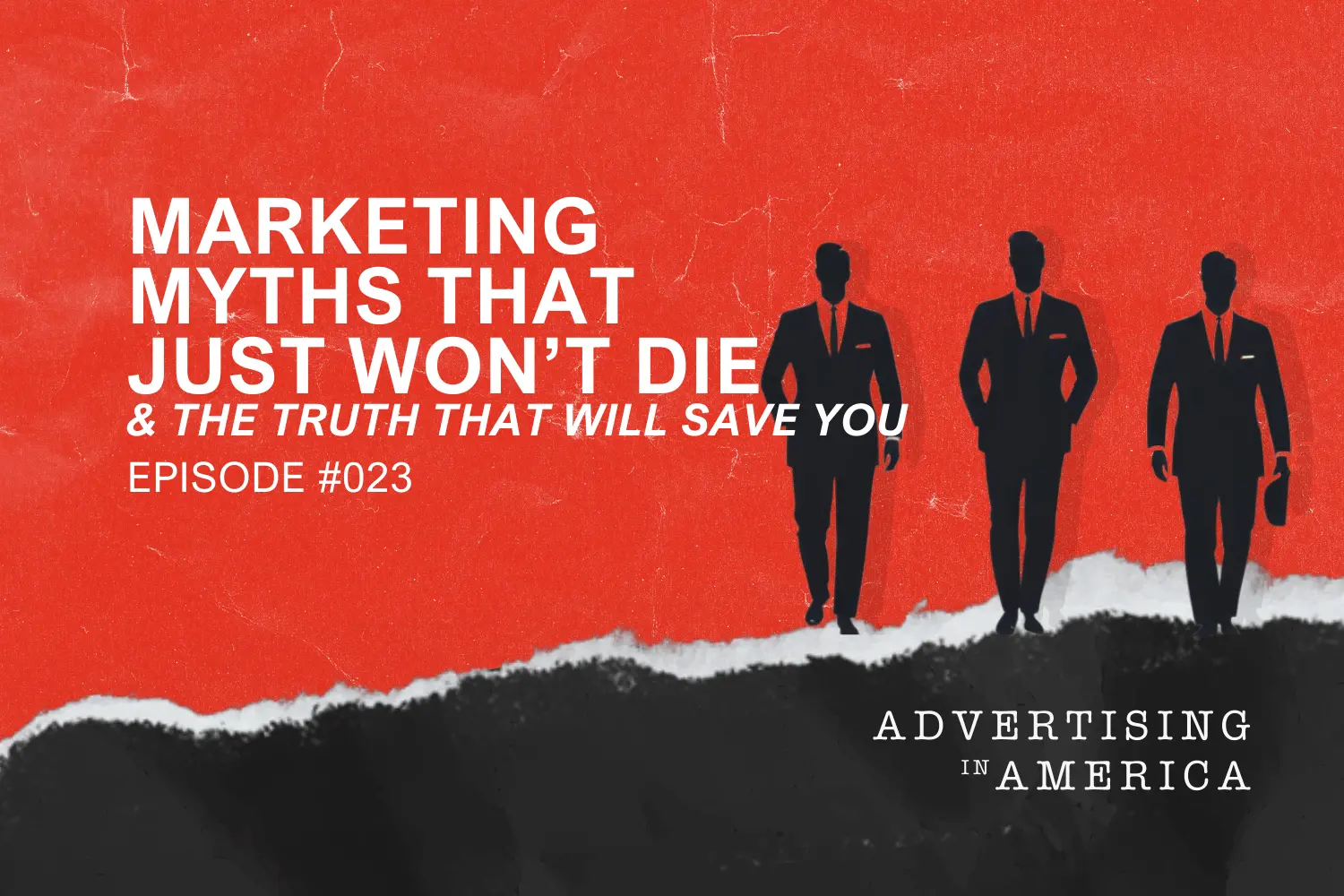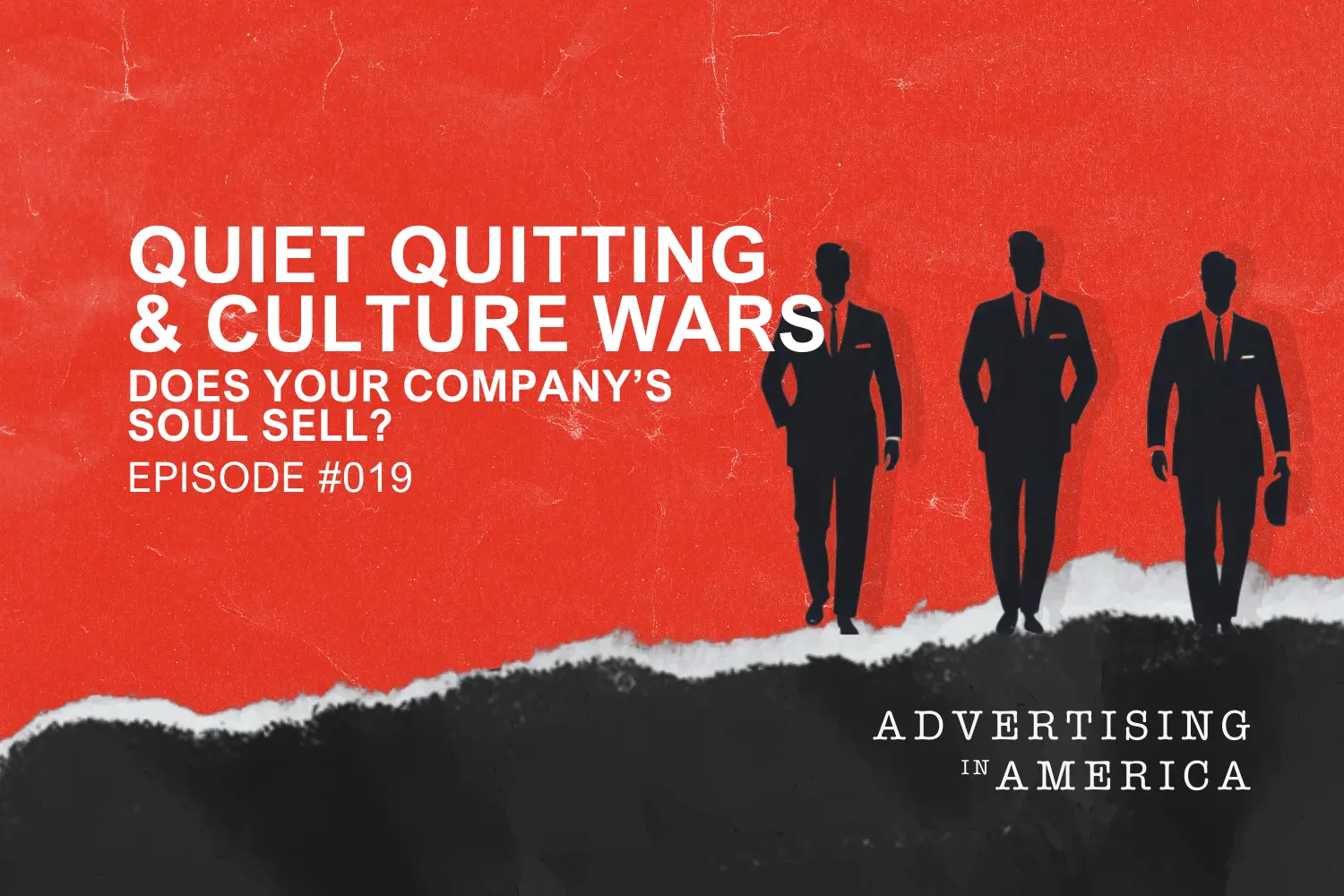Sales is a strategic process. From connecting with the prospect all the way to the close, ensuring a successful sale requires covering your bases.
So, why do so many salespeople struggle with this process?
In many cases, they lack a clear and consistent understanding of what matters. Sales success largely depends on having clarity on how to show up and act.
The first step before you ever get into any sales process is exploring what matters in sales. The King of Sales, Jeffrey Gitomer, author of The Sales Bible, put together this guide that every salesperson should know.
Here is a Wizard’s perspective on the King’s words of wisdom.
1. Don’t worry, be happy!
A positive outlook will take you far in sales—and in life. If you show up with a smile and an open mind, prospects are more likely to respond positively. Shift your mind off the distractions in life weighing you down, and turn that frown upside down.
Literally, smile. Look at your goofy ass in the mirror smiling. Smile at other people. Smile at babies and animals, and that coworker that you can’t even. You’ll be surprised at what you get out of it.
2. Believe!
Ted Lasso taught us you gotta believe. Or was that Lenny Kravitz? Believe in what you’re selling, and you’ll sell it more effectively. It helps if you’re knowledgeable about your solution and confident in yourself. If you enter a sales call with self-doubt or uncertainty about your solution, your prospect will likely pick up on it.
3. Your mission, Jim…
To be successful in sales, you need to set goals, act with persistence and tenacity. Wanna know how I set a goal? My goal on a sales call is to close the sale as long as there’s an ethical sale to be closed. Every day, I set a goal to get 3 appointments and close as many of them as I can.
When you shift your goals from something big and difficult to swallow, it’s hard. When you make a daily goal and work hard on today, then tomorrow, you get shit done.
“The easiest way to swallow an elephant is one bite at a time.”
4. A thousand shots per day
Sidney Crosby, Michael Jordan, Tiger Woods, Steve Nash, Wayne Gretzky— these greats shot 1000 shots every day. Do you want to be good… or great? They are the best because they practiced, studied their own shots, the other team, and new techniques incessantly. If you want to be the greatest of all time, you have to do something great.
In essential home services, you have persuasive, technical, and administrative skills that can be honed into a sharp edge. Ever hear of kaizen?
5. The Needs Trifecta
No matter what you sell, there are always three needs you need to understand before you can diagnose the best solution for a prospect.
- The solution’s needs
- The environment’s needs
- The buyer’s needs
The better you understand what the right solution is, the environment it is exposed to, and meeting the perceived expectations of the user, the better your prognosis (solution) will be for the buyer.
“Prognosis without diagnosis is malpractice.”
6. Be the Helper
Fred Rogers taught us that when people are in need. When they’re afraid and need help, they should look for the Helpers. Your prospects are looking for the helpers.
People can tell when you’re trying to help yourself. When you’re authentic in your desire to meet or exceed their expectations, they’ll do business with you.
7. Transactional and Relational Selling
What’s better? A single transaction from a buyer, or a bunch of sales over an extended period of time from that same buyer? As a business owner with long-term plans, you want the long-term buyer. The salesperson wants the sale sitting in front of him.
In a world where every sale matters, including the ones that have yet to manifest, the sales process should take both the short-term and long-term into consideration.
Focusing on the transaction rather than the consumer's long-term needs will only get you so far. To succeed in essential home service sales, you want to focus on developing long-term relationships with your clients. This means you may be going above and beyond before you realize the full breadth of revenue in the lifetime value (LTV) of the client.
I know that sales success is more than just a quick pitch. That’s why I help our clients build sales processes that nurture relationships and long-term success. If you’re ready to take your sales to the next level, book a call with me.
8. Believe in your tribe
If you have little faith in the company or product you’re representing, it will show. To close more deals, you need to have complete confidence in what you’re offering. This means being knowledgeable about your product and being able to answer any questions a potential customer might have.
9. Be a Boy Scout. Be prepared.
Nothing kills a sale faster than being unprepared. If you’re meeting with a client, ensure you know everything about their needs and what they’re looking for. The more you know about them and what you are selling, the better equipped you are to sell to them.
Don’t get ready to help them when you arrive. Be ready to help them before they ever call.
10. Be sincere
Let’s face it, no one likes to be sold to. When talking to a potential customer, be sincere and tell them you’re here to help them. Be genuine in your desire to see them succeed, and they’ll be more likely to do business with you.
Success for a buyer of an externally triggered grudge purchase looks like a repair, not a replacement. When a repair would suffice. Making an effort to make the problem go away for less money is a virtue that’ll have them appreciating you rather than begrudging you.
People will reward your patience with revenue…eventually.
11. Take purchase vitals
Saving money, effort, and time is a valuable benefit for you and your prospect. Knowing whether or not a prospect is able to make the buying decision is very useful to know as early in the process as possible.
Before you start closing someone, ensure they have the budget, need, and authority to make a purchasing decision.
12. Time is a test
Sales success doesn’t just depend on what you do during the sales process, but also on how you show up.
Showing up on time is a test that you have to pass.
Being late demonstrates your lack of empathy for their precious time. If you’re meeting with a customer, ensure you are always on time and ready to solve their problem competently.
13. Look professional
How you carry yourself affects you and the company you work for. By presenting yourself as a professional individual, you can create a positive image of yourself and your company.
Whether it's the uniform you wear, the tools you have at the ready, or the truck you show up in, be conscious of your hygiene, cleanliness, and grooming.
But also consider the way you walk, make eye contact, smile, and talk. All of these elements go into how you will be perceived.
14. Build trust
The relationship between you and the customer is the most critical aspect of the sales process. To build trust out of the gate, be proactive in your communication. Look for opportunities to create a bond, build a bridge, or mend a fence.
This can come from icebreakers, compliments, and stories. Being forthright about your agenda is a relief to people who are unsure of what you’ll be doing. Reviewing what you will be doing and why brings a lot of peace to a person. Once complete, tell them what you did, what you found, what you recommend, and why.
Finding ways to explain things simply and unsell things that you recognize others may see as a sale are also valuable ways to demonstrate trust through empathy and competence.
15. Use humor
Humor is one of the best ways to build relationships and trust with potential consumers. By using family-friendly humor, you can establish that you, too, are human and understand the customer’s perspective.
Humor is best when you have a few in the can. A favorite icebreaker for me when I have a tough nut in front of me is, “By chance, do you know how much a polar bear weighs?” When the customer doesn’t know, you can say, “Enough to break the ice.”
Employing humor is also a great way to have fun while working. Weird, huh?!
16. Be competent
You want to be able to sell your product to customers competently. Before a prospect will make the decision to use you, they are looking for signals that you are the most competent.
Have a complete and updated understanding of both how to solve the problem conveniently and how to make the person feel right about your option over others.
17. Sell the advantages of the benefits, not the features
For years, trainers have taught salespeople how to sell the benefits of features. But I say hooey. People want benefits as much as they want features.
You know what I’ve discovered people really want? The advantage.
Are they buying the thing that makes them feel like they made the right decision? That they are a good steward of their family’s funds. That they look smarter, better, or more relevant. Did the things they buy elevate their status, in themselves, with their loved ones, and with the tribes they care about most?
18. Stand against dishonesty
Telling the truth is obvious, but it seems like you have to go the extra mile today for anyone to notice. That’s why it's not enough to stand for the truth anymore.
Today, you need to stand against the injustices in your industry. Identify what is unjust in your business environment, and stand for what’s right.
19. Guarantees are worthless without self-imposed consequences
When you say 100% satisfaction guaranteed, not one emotion moves. When you say, “we’ll do whatever it takes,” no one believes you.
For a guarantee to have potency today, you need to attach a self-imposed consequence for it to matter. Nothing so grand as it’s unbelievable. But something that hurts when you have to commit to it. That’s your true value in the eyes of the beholder.
20. You are your Competition
No one thinks you are any different than your competition. They believe you are all exactly the same. Even when they know better, they forget.
Don’t poop on your competiors parade. Just be indifferent to it.
“I don’t know what they do over there at Acme Plumbing, I just know I’m real confident in what I can do for you and this problem.”
Damaging the reputation of your competition is a surefire way to lose potential customers. Not only is it poor salesmanship, it also reflects poorly on you as a person. If you can’t sell your product without downing the competition, you may need to reflect on your sales process.
21. Social proof is comforting
One of the best ways to build trust with potential customers is to show them how others have succeeded with you. Keep customer testimonials or success stories on hand to share with prospects.
If you’re really brave, show them a few one-star reviews and tell them how you handled the situation to make things right. Ballsy, but powerful.
22. Listen for when to flip the switch
One of the fundamental mistakes in sales is to confuse it with closing. Sales is the dance that helps you find out what and how to best sell the solution the buyer needs most.
Closing is knowing when to stop selling and start pinning the single best solution to the ground, like jiujitsu.
When you have determined what the single best solution is to sell ethically, persistence is essential. The better your value proposition in proximity to alternatives, the easier it is to close the sale.
23. Anticipate resistance
A closer understands that buyers are king to complain, lie, object, stall, give excuses, or flat out reject your solution as presented.
You gotta be prepared before you arrive on how to handle this. Practicing your closing ARCs will have you armed with an army of natural responses. As you practice, think about which of the 7 root objections you’re facing to help you come up with the best ARC.
24. Persistence isn’t pressure
If you believe in the depths of your heart that you have the best solution for your buyer, it’s your duty to help them break the seal and commit to the purchase. Anything less is a disservice to them— a waste of their time, and a drain on their energy.
Closing an ethical deal is the highest form of service, because until then, nothing transforms.
Persistence is approaching the situation from a variety of perspectives, while pressure is going at the problem over and over again in the same way, expecting a different result.
25. Practice Tantric Selling
Oftentimes, there is more than one thing to sell a prospect, and your ego is screaming at you to go for the home run. Just remember, your ego is not your amigo.
The priority is to first get a sale underway. It’s amazing how things change once you’ve broken the first seal. Once you’re over the threshold, there may be a second sale to approach with the client.
You’ll be amazed how much easier a second sale is to close, especially if you are saving the buyer money by doing the work while you’re already there.
26. Did you ask for the sale?
There’s a 1 in 8 billion chance that your customer is a mind reader. They’re not going to demand you sell them something. You’re going to have to ask for the sale.
Did you actually ask, or just infer that they could buy? When they resisted, did you use your closing ARCs? Before you left empty-handed, did you call your manager for a higher authority close?
27. Dynamic silence helps close deals
Getting comfortable with awkward silence is hard. If you have high accommodation, silence can be deafening. If your talking after you’ve asked for the sale, even if it’s just to add a little more info, you done eff’d up.
Trust in silence. Lean on silence. Love the silence. Make a challenge of it. How long can you last? Did you win, or did the buyer? Dynamic silence is the quiet path for everyone to win.
28. Make a detailed next step
If the customer won’t buy immediately, you have almost certainly missed the mark on value or budget. Sometimes, they need to weigh your value up against the competition. Sometimes you need to find practical solutions that the buyer feels they can afford to apply to your solution. Prepared salespeople will have that information in their back pocket.
Worst case, you need to book a follow-up appointment. By phone or in person, this appointment must have a specific date and time. Otherwise, it’s not real. It should come with a commitment from your prospect to say yes or no, not maybe.
Otherwise, you’re just getting politely rejected.
29. Persistence through resistance never fails to make the sale.
If you’re having trouble closing a sale, don’t give up! Even if that means going back to the very beginning and revisiting The Needs Trifecta (#5) with your prospect.
Sometimes, there is a black swan that you’ve yet to uncover that is hiding in your blind spot.
Many black swans are underlying felt needs. For example, not understanding the importance or impact of your solution, therefore leading to a lower perceived budget. Or not feeling that you are empathetic or competent in comparison to an alternative choice.
30. You’re vulnerable, but you’re safe.
When you come up against resistance, you need to be trained to withstand the emotional force it hits you with.
Practice taking a hit. Practice getting figuratively shot at. Practice your response to that assault.
When you have closing ARCs loaded in your chamber, you’ll have the emotional durability to be the very best Helper you can be.
You’re throwing yourself into the fray. It takes resilience. You get this grit from being prepared. Let your training take over.
31. Those who adapt, thrive.
Life is about change, but it’s uncomfortable. Humans thrive in routine and grow when faced with unique situations to overcome.
The thriving mind is one of curiosity, creativity, and a thirst for adventure. There’s nothing exciting about guarding the vault of all the stuff you already have and know.
Seek the unexpected and find healthy ways of conquering the unknown.
32. Do what’s right for people.
Notice I said people. Not you. Not your customer. Not the company. Everyone.
Ethical and moral behavior should guide your actions and behaviors as a salesperson. There just isn’t any reason to ever be manipulative, deceptive, or self-serving.
If you can’t sell what you’ve got based on its own value and merits, then find a place where you can do that.
33. Relational and transactional mindsets
The best customers are the ones who will listen and follow your recommendations at a higher average sale and profit. You've got these customers with amazing advertising or previous buying experience. They see your relationship as relational.
The worst customers nickel and dime you, take forever to make a decision, and usually buy somewhere else. They aren’t loyal and see you as interchangeable with your competitors.
When you act relationally to your customers (and coworkers), you’ll receive relational treatment back. Treat them transactionally, and they will reciprocate in kind.
34. Sales activities beget sales
My friend Tim always said, “Sales activities beget sales.” Do the revenue-generating activities that lead to a sale, and eventually, they will.
Persistent efforts feel like they create luck, as long as you're following the methods that have shown to consistently get results.
35. Take extreme ownership
More often than not, when sales conversions start to slump, it’s because revenue-generating activities have been replaced with busy work and skipping essential steps on the path to the sale.
Taking responsibility for your actions, reorienting your focus back to basics, and leaning into your revenue-generating activities are a surefire way to get back on track.
And, damn it feels good to be a gangsta.
36. “No” means “I don’t know.”
When a prospect complains, lies, objects, stalls, gives an excuse, or flat out rejects your pitch, you have to wonder what you missed.
In a transactional world where what you sell is seen as the same as everyone else, the only difference is how you make them feel.
Convincing them won’t work. Reconciling their feelings will.
Go back and look at what didn’t feel right, piece by piece, until you find out the thing (or things) that don’t resonate.
This is what they mean about getting on the same wavelength. You’re removing the vibration that causes friction. Remove the friction, make the sale.
Feelings are the physical manifestation of it, sitting right in their heart and mind.
37. Reverse engineering
When you know how many people you need to call to get the number of appointments you need to have to get the number of sales you need to close to generate the revenue you want to earn, you have a formula for success.
Understanding your current average ticket by sales type will dial in your accuracy even further.
Then all you have to do with the formula is work the plan.
38. Consistency builds passion
If you can be okay with being terrible at selling before you’re great, you’ll grow to love the work.
Passion doesn’t create consistency. Consistency creates passion.
You have to respect the work, the company, and the solutions you represent, but passion comes from showing up and putting in the reps.
In no time, you’ll be good. Those who continue to put in the reps, even though they don’t need the practice, always outperform those who take their foot off the gas.
Consistency is king if you want to live like one.
39. Be a delight
There’s one sure-fire way to be memorable in your dealings with clients. Delight.
Delight occurs when you intentionally do something that you never promised.
This should be planned ahead of time, but appear spontaneous, like the reveal of a magic trick or the punchline of a joke.
How do you go the extra mile?
Simple. Don’t reveal that you intended to go the extra mile the whole time.
Surprise is the secret ingredient of delight. And delight activates oxytocin.
Oxytocin is where bonding, loyalty, 5-star reviews, and unsolicited referrals come from.
39.5. Have fun!
This is the most important rule of all. Why? Because joy, happiness, gratitude, abundance. These all live in a thriving mindset. Growth, generosity, and grace all add to your positive resonance.
When you enjoy what you’re doing, it will show up in your career and attitude, and life, which is contagious for the people you connect with.












.webp)










.webp)

.webp)
.webp)

%20(1).webp)
.webp)
.webp)




.webp)


.webp)






.webp)




.webp)
.webp)


.webp)
.webp)







